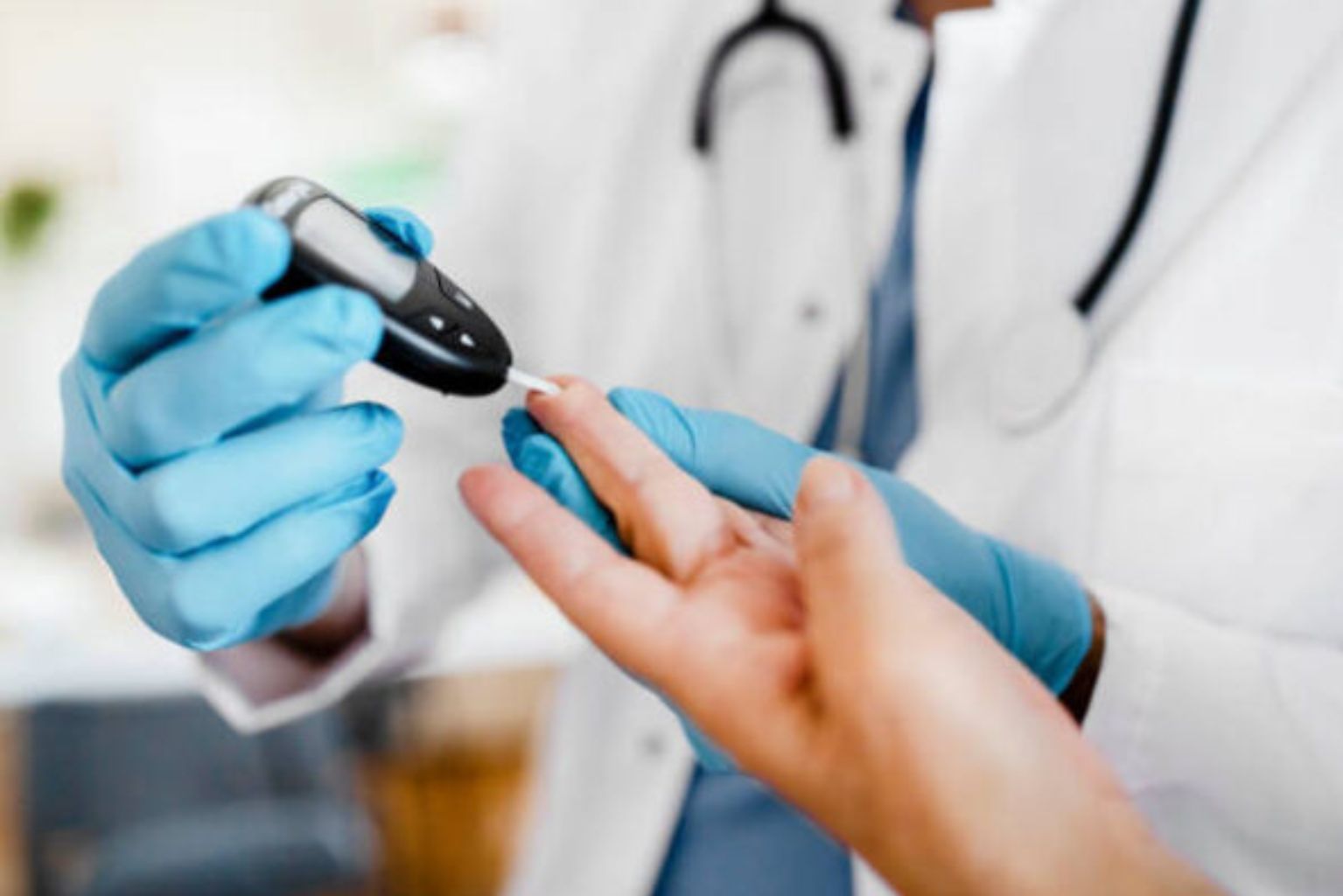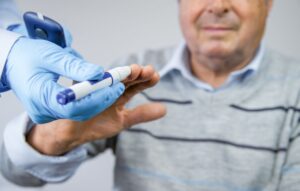
30 Sep Diabetes Demystified: Everything You Need to Know
Diabetes Demystified: Everything You Need to Know
Diabetes is a current yet dangerous illness that affects millions of individualities worldwide. At our lab, we take pride in awaring people about health issues in an accessible manner. Thus, let’s examine what diabetes is, its causes, and operation options.

What is diabetes?
Diabetes has an impact on the way your body converts food into energy. The majority of our diet is converted to sugar, also known as glucose, which is then released into the bloodstream. An increase in blood sugar causes your body to instruct the pancreas to generate insulin, a hormone that facilitates the uptake of sugar by your cells for energy.
This procedure malfunctions in people with diabetes. Your blood sugar levels are too high because either your body cannot properly use insulin or it does not produce enough of it. This can lead to major health issues in the long run.
Types of Diabetes
There are various forms of diabetes. The most typical ones consist of:
-
Diabetes Type 1
- An autoimmune disorder that is typically identified in young people or children.
- The body unintentionally kills the pancreatic cells that produce insulin.
- Individuals with Type 1 diabetes must receive insulin injections on a daily basis.
- Genetics and viruses may be involved, although the precise reason is still unknown.
-
Diabetes Type 2
- The most prevalent type, which typically affects adults but is now also observed in children.
- The body either stops producing enough insulin or develops resistant to it.
- Connected to lifestyle choices like eating poorly, not exercising, or being overweight.
- Regular check-ups and healthy practices can help manage or even prevent it.
-
Gestational Diabetes
- Occurs during pregnancy and usually goes away after delivery.
- Raises the chance of getting Type 2 diabetes in later life.
- It is crucial to keep an eye on the mother’s and the infant’s health.
Common Symptoms of Diabetes
Diabetes can appear gradually, and some people may not experience any changes in their symptoms in the early stages. Nonetheless, when blood sugar levels are excessively elevated, your body may give you a number of warning signals.
1.Frequent Urination (Polyuria)
Your kidneys have to work harder to eliminate extra sugar through urine when your blood sugar levels are high. This implies that you can experience the urge to urinate more frequently, particularly at night.
-
Excessive Thirst (Polydipsia)
Your body becomes dehydrated as a result of the increased fluid loss through urine. Even after drinking water, this causes you to feel thirsty more frequently.
-
Increased Hunger (Polyphagia)
Your body cannot use the food you eat as fuel if there is insufficient insulin to facilitate the uptake of sugar by your cells. This can make you feel hungry all the time, even after eating.
-
Enigmatic Loss of Weight
Your body will begin burning fat and muscle for energy if it is unable to obtain energy from sugar. Even with a regular diet, this can cause abrupt weight loss.
-
Weakness or Fatigue
Your body lacks energy when sugar isn’t getting into your cells correctly, which makes you feel incredibly exhausted or depleted all day.
-
Blurred Vision
Vision distortion or blurriness might result from high blood sugar’s impact on the small blood vessels in your eyes. If neglected, it can occasionally result in permanent eye damage.
-
Slow Recovery from Injuries and Cuts
Infection risk rises and the healing process is slowed by high blood sugar. Infections, minor wounds, or sores can not heal as quickly as they should.
-
Numbness or tingling in the hands and feet
Diabetic neuropathy is a disorder where uncontrolled diabetes damages the nerves, particularly in the extremities, over time, resulting in tingling, burning, or numbness.
-
Regular Infections
Infections are more likely to occur in the skin, mouth, urinary tract, and genital area when diabetes weakens the immune system.
How is Diabetes Diagnosed?
A few essential blood tests are usually used in a diagnostic lab like ours to identify diabetes:
- After 8–12 hours without eating, the fasting blood sugar test checks blood sugar levels.
- The HbA1c test provides an average of your blood sugar levels over the previous two to three months.
- Often done during pregnancy, the oral glucose tolerance test (OGTT) examines how your body responds to sugar over time.
- These tests can provide a detailed picture of your blood sugar levels and are safe and rapid.
To detect and monitor diabetes, a few key blood tests are commonly used. Fasting Blood Sugar (FBS) measures your blood sugar after 8–12 hours of fasting. Postprandial (PP) Sugar checks your sugar level 2 hours after a meal. The HbA1c test gives an average of your blood sugar over the past 2–3 months — helping track long-term control. These tests are essential for early diagnosis and effective management of diabetes.
What Makes Diabetes Management Crucial?
Over time, uncontrolled diabetes can cause major health issues like:
- Stroke and heart disease
- Damage to the kidneys
- Blindness or loss of vision
- Injury to the nerves, particularly in the hands and feet
- Foot issues that could result in amputations or infections
The good news is that diabetes can be controlled with the right care. By managing their health, many people lead active, healthy lives.
Managing Diabetes: What You Can Do
A few constant lifestyle adjustments are necessary when living with diabetes. The following are important steps:
Eating Healthy
- Select lean meats, fresh produce, entire grains, and healthy fats.
- Limit processed foods and sugar-filled beverages.
- Try to eat at regular times and keep an eye on portion amounts.
Frequent exercise
- Most days, try to get in at least 30 minutes of exercise, such as swimming, cycling, or walking.
- Your body uses insulin more effectively when you exercise.
Tracking Blood Sugar
- To monitor your blood sugar levels, use a glucose meter at home or schedule routine laboratory testing.
- Maintaining a record enables your doctor to modify your treatment if necessary.
Insulin or medication
- To help control their blood sugar, some patients may require insulin injections, tablets, or other drugs.
Regular Testing
- Regularly examine your heart, feet, kidneys, and eyes.
It’s easier to avoid problems than to deal with them afterward.
Prevention Tips
You can lower your risk even if you do not currently have diabetes:
- Keep your weight in check.
- Eat a balanced diet and continue to be active.
- Steer clear of tobacco and excessive alcohol.
- Obtain routine blood sugar checks, particularly if there is a family history.
Conclusions
Your life does not have to be controlled by diabetes. You are capable of taking control of your health if you have the appropriate information, habits, and support. Whether you need a normal blood sugar check, a HbA1c test, or a specialized consultation, our lab is ready to help.
Regular monitoring and early discovery can make all the difference.
Do you need to set up a test or have questions? Your health matters, so get in touch with us right now.


No Comments